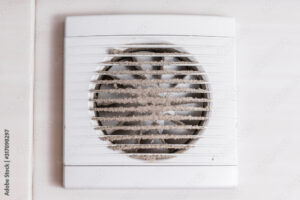Maintaining good indoor air quality (IAQ) isn’t just about comfort—it’s essential for your health and well-being. Whether you’re a homeowner, a parent, or just someone conscious of their health, understanding the benefits and drawbacks of IAQ can help you make informed decisions about your living environment.
Share with us your Contractor Con Horror story.
For Tons of Great Free Information please hit “Like & Subscribe”
Websiteconstructionconsumeradvocacyinstitute.com
www.youtube.com/@ConstructionConsumerAdvocacy
Pros of Good Indoor Air Quality 
1. Improved Health 
High-quality indoor air reduces the risk of respiratory issues, allergies, and asthma. With fewer pollutants like dust, mold, and pollen lingering in the air, your family breathes easier and stays healthier.
2. Better Sleep
Cleaner air often leads to better sleep quality. Poor IAQ can irritate your airways and disrupt your breathing, leading to restless nights.
3. Enhanced Productivity
Whether you’re working from home or helping your kids with homework, better IAQ can improve focus and reduce fatigue, allowing you to perform tasks more efficiently.
4. Reduced Mold and Mildew Growth 
Maintaining the right humidity levels and ventilation improves IAQ and prevents mold and mildew growth, protecting your home and health.
5. Energy Efficiency 
Improving air circulation with updated HVAC systems or air purifiers can also make your home more energy-efficient. Proper air filtration ensures that your heating and cooling systems work optimally.
Cons of Poor Indoor Air Quality
1. Health Risks 
Contaminants like carbon monoxide, volatile organic compounds (VOCs), and airborne particles can lead to serious health issues such as breathing problems, headaches, and even long-term illnesses.
2. Allergy Triggers 
Poor IAQ can intensify allergy symptoms due to the higher presence of dust mites, pet dander, and pollen indoors.
3. Higher Maintenance Costs
Neglecting IAQ issues can lead to more significant problems, like mold infestations, that require expensive professional remediation.
4. Compromised Comfort 
Stuffy air, weird odors, or excess humidity can make your home feel unpleasant, even if it appears clean.
5. Environmental Impact
Without proper control, overuse of poorly maintained HVAC systems can lead to wasted electricity and contribute to your carbon footprint.
What Can You Do to Improve IAQ?
If you’re interested in enhancing air quality at home, here are some quick tips to take control of your environment:
- Invest in an air purifier to eliminate pollutants.
- Regularly clean and replace HVAC filters.
- Add indoor plants that help circulate fresh air.
- Control humidity with a dehumidifier or humidifier.
- Open windows regularly for natural ventilation (when outdoor air quality is good).
By understanding the pros and cons of IAQ, you can ensure that your home isn’t just a place to relax, but a sanctuary for your health and comfort. Remember, small changes can make a big difference in the air you breathe!


